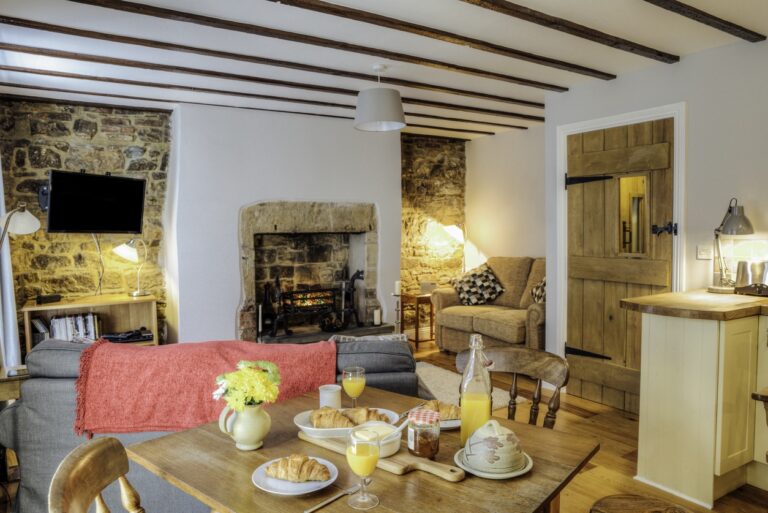
What is happening to the furnished holiday letting rules?
In this article – first published in Taxation Magazine – John Endacott provides clarity on the Government’s furnished holiday lets proposal.
In his Budget Speech on 6 March, Jeremy Hunt announced the abolition of the furnished holiday letting (FHL) rules from 6 April 2025. Whilst this announcement had been trailed in the Sunday Times on 3 March, there was no supporting detail in the Budget announcement, other than reference to anti-forestalling legislation. In fact, there was probably more policy detail in the Sunday Times article than there was on Budget day.
This is not the first time that the death of the FHL rules has been announced. In his Budget on 22 April 2009, Alistair Darling announced that the FHL rules would be abolished from 6 April 2010. The reason given for abolition in 2009 was that the rules were discriminatory as they only applied to UK properties. In consequence, they were immediately, and retrospectively, applied to all properties in the EEA. Ultimately, instead of abolition, the rules were tightened in 2011 and 2012 by increasing the required letting periods and the tax benefits restricted by preventing sideways loss relief against other income.
I think it is quite possible that history may repeat itself because there was nothing in Finance Bill (No. 2) 2024 and any legislation is therefore a matter for the next government – after the general election. Indeed, the history of the FHL rules is dominated by elections – 1983, 2010 and now 2024 or 2025. It is also a tale of the conflict between tax policy making by HM Treasury, and the more practical aspects of tax, as dealt with by HMRC.
This article considers what we know so far, the policy drivers for this change, and what the eventual outcome might be. It should be noted that in the policy costings announced with the 2024 Budget, the abolition of the FHL regime is expected to be broadly revenue/cost neutral in the short term. The issues are about things other than the direct tax take.
Tax policy on holiday letting
The reasoning for the FHL rules is the boundary between investment activity, and the carrying on of a trade. In 1982 and 1983, the cases of Gittos v Barclay, Griffiths v Pearman and Griffiths v Jackson, established that the carrying on of a self-catering business did not meet the requirements of a trade. Instead, the definition of trading was narrower than had previously been anticipated and more activities were taxable as property letting rather than as trades.
There has been no change in the law on this since those cases and the position was confirmed recently in the case of Julian Nott.
It was clear in 1983 that the law on the boundary between property letting and trading unfairly penalised a large number of self-catering businesses. Whilst several options were explored at the time, ultimately, a decision was made to create a separate intermediate category in-between normal property letting businesses and trading activities. Anything else was in the too difficult camp. This new intermediate status for FHLs only applied to those properties being commercially let and which met an objective minimum level of letting. Under these FA 1984 rules, the minimum level of letting was that properties had to be available for letting for 20 weeks a year, and actually let for 10 weeks a year.
The key driver of policy now appears to be the impact of displacement of properties from the long term residential letting market into being holiday lets – typically with Airbnb.
From my experiences lobbying against the abolition of the FHL rules in 2009/10, my take was that HM Treasury never liked these rules. I think the practical solution to a legal technical issue did not sit well from an economic policy perspective. The question that was asked was “why should holiday accommodation be treated differently?”. Also, by 2009 buy to let landlord groups had become quite vociferous, and felt that the tax rules unfairly favoured holiday letting.
By 2009, the holiday letting market had changed considerably from 1984, with a much longer season and the growth of the internet facilitating more short term letting of properties – Airbnb was in existence by then but was in its infancy. There was also a tax arbitrage opportunity created by the Labour government’s policies that had made FHLs into a tax shelter for high earners in the City.
This tax arbitrage worked because refurbishment works to a qualifying holiday let could be offset against other income by means of sideways loss relief. This loss was relieved at 40% or 50%. The refurbishment expenditure increased the value of the property. After a little more than a year, the property could be sold with the gain only being taxed at 10%.
The FA 2011 changes brought this tax wheeze to an end. Sideways loss relief against general income was withdrawn and the minimum letting periods were raised requiring properties to be available for letting for 30 weeks and actually let for 15 weeks. For those not familiar with the industry, these are fairly challenging targets, especially for those in more remote coastal communities. It should also be remembered that the lettings must be commercial – family and friends at reduced rates don’t count.
Following FA 2011, businesses that meet the qualifying holiday letting criteria have the following tax treatment:
- Furniture, furnishings, fixtures and integral features are dealt with under the capital allowances code for plant and machinery
- A disposal of a property can be eligible for certain capital gains tax (CGT) reliefs – Business Asset Disposal Relief (BADR), section 165 gift hold-over relief and roll-over relief
- Flexibility of the allocation of profit between spouses and civil partners
- Any profit by an individual is net relevant earnings for pension contribution purposes
The FA 2011 changes seemed a reasonable compromise and the world moved on. Three significant things then happened:
- Small business rates relief was introduced. This is not under the control of HMRC but rather the Department of Levelling Up, Housing & Communities. Whilst this measure was introduced for entirely different purposes, the failure to first consider holiday lets and then later to recognise the error and change the rules gave a free lunch to many single holiday let owners – no local tax levy of any type on their properties. There is no council tax because business rates apply, but then no business rates because of small business rate relief.
- The introduction of the loan interest reducer for property letting. This restricted the tax relief on loan interest on properties to being at the basic rate only. Surprisingly (even at the time), it was decided not to apply it to qualifying holiday letting properties. It is not clear what the thinking was on that decision but crucially, it reversed the logic of the FA 2011 changes by increasing the tax relief available for those acquiring a holiday letting property. The inevitable impact in coastal locations was to increase the desirability of holiday letting over long term letting.
- The staycation boom that followed the pandemic lockdowns hugely boosted the financial return from holiday letting properties. This in turn incentivised more people to undertake short-term letting of properties. This has probably played out now and there is an over-supply of properties in many locations. In turn, this means that qualifying for the FHL rules has in fact become more difficult.
Alongside these changes, there has been the growth of Airbnb and a low touch approach by HMRC to policing those businesses claiming FHL status.
The key driver of policy now appears to be the impact of displacement of properties from the long term residential letting market into being holiday lets – typically with Airbnb. The FHL rules are seen as incentivising property owners to let properties as short term holiday rentals rather than on assured shorthold tenancies. This is causing acute issues in certain coastal locations and Newquay in Cornwall is often cited as an example. Apart from market forces, the two most commonly quoted tax incentives are the more favourable treatment of loan interest and small business rates relief – neither of which existed when the rules were reformed in 2011.
The Office of Tax Simplification view
In a document dated 25 October 2022 and entitled “Property income review: simplifying income tax for residential landlords” the Office of Tax Simplification (OTS) proposed the abolition of the FHL rules. In chapter 6 devoted to the FHL regime, many of the arguments against retaining the FHL rules are rehearsed. At paragraph 6.47, the OTS recommended the Government consider whether to retain the separate regime. Alternatively, the OTS suggested changing the qualifying FHL test criteria. In particular, they suggest at paragraph 6.63 that material private use should be prohibited.
If the FHL regime were to be abolished, the OTS recommended a statutory ‘brightline’ test to move some existing FHLs to being classed as trades. The proposed test is set out at paragraph 6.50. It suggested that this test should be determined by a minimum number of properties, no personal usage and a minimum level of services being provided. It also suggested that this statutory brightline test could apply for other taxes and reliefs such as inheritance tax business property relief.
Also, if the FHL regime were to be abolished, the OTS suggested at paragraph 6.65 that consideration should be given to transitional rules in respect of capital allowances and brought forward losses. The OTS suggested potentially allowing a spreading of any capital allowance balancing charge and allowing FHL losses to be carried forward to be offset against non-FHL letting income profits.
Whilst there has been no official government comment on this OTS document to date, I understand that HM Treasury doesn’t like the brightline test idea as proposed and thinks that it would benefit those who are able to afford more properties rather than being a fair test to determine whether an activity is trading or not. In any event, there was no mention of the brightline test as part of the abolition announcement, nor of the treatment of capital allowance pools or losses.
Anti-forestalling measure
The Budget documents did contain reference to an anti-forestalling measure in paragraph 2.7 of the Overview of tax legislation and rates (OOTLAR). This “will prevent the obtaining of a tax advantage through the use of unconditional contracts to obtain capital gains relief under the current FHL rules. This rule will apply from 6 March 2024.”
There has been some concern over what this means. In my view, it is designed to prevent taxpayers undertaking planning to seek to utilise BADR by crystallising a gain on a property transaction even though no ultimate purchaser of a property is yet known. It seeks to prevent a technique that has been used in the past when the CGT rate on property has been increased. That said, the position is not completely clear-cut and is rather unsatisfactory. It seems a very bad way to draft and implement tax legislation given that we don’t know what legislation will be forthcoming and when.
My guess would be that any change in the rules looks likely to move back by at least a year from April 2025, if it ever happens at all.
What has the Government said since the Budget?
Since the Budget on 6 March, there has been considerable lobbying activity by the self-catering tourism bodies. They have raised their concerns about the potential impact on the hospitality and tourism sector and in particular in respect of the lack of clarity as to the impact on the businesses involved. No technical note or consultation document has been published, nor is there any draft legislation available.
In correspondence with MPs on the proposed abolition of the FHL rules, most MPs make reference to comments made to them by Nigel Huddleston, Financial Secretary to the Treasury. I understand that he has said that any measures to achieve the Government’s policy objectives on reducing the tax attractiveness of holiday lets will not be introduced into Finance Bill (No. 2) 2024 by amendment. If so, this means that they will not be legislated until after the general election and not much before April 2025, if at all.
Given the legislative timescale, my guess would be that any change in the rules looks likely to move back by at least a year from April 2025, if it ever happens at all. Further, Nigel Huddleston has not provided any indication as to possible transitional provisions, or reliefs.
What might the ultimate outcome be?
The unrestricted nature of loan interest relief for holiday letting properties is prompting similar comments to those made about sideways loss relief in 2010. It does seem to me to be the main focus of attention. Paragraph 2.7 of the OOTLAR stated that the aim of the policy is “eliminating the tax advantage for landlords who let out short-term furnished holiday properties over those who let out residential properties to longer-term tenants“. The key tax benefit being referred to seems to be loan interest relief and it would be very easy to restrict that relief without abolishing the entire FHL regime.
The lower CGT rate on sale because of BADR may also be in the Government’s sights. Again, that is pretty easy to restrict without removing the entire FHL regime. The activity could cease to be a qualifying one for BADR, or BADR could be prevented from applying to residential property, or the qualification period for BADR could be extended from two years. By way of comparison, retirement relief had a 10-year qualification period.
The Government could also restrict the qualifying criteria for the FHL regime further – for instance prohibiting any material private usage, but that feels like a sideshow.
If the next government does go ahead and abolish the entire FHL regime (instead of just restricting the tax reliefs applying) then HM Treasury will need to solve the boundary between property investment and trading conundrum that was considered too difficult to solve in both 1983 and 2010. That is easier said than done.
Read more: Furnished holiday lets tax regime abolished – Budget 2024
Written by











